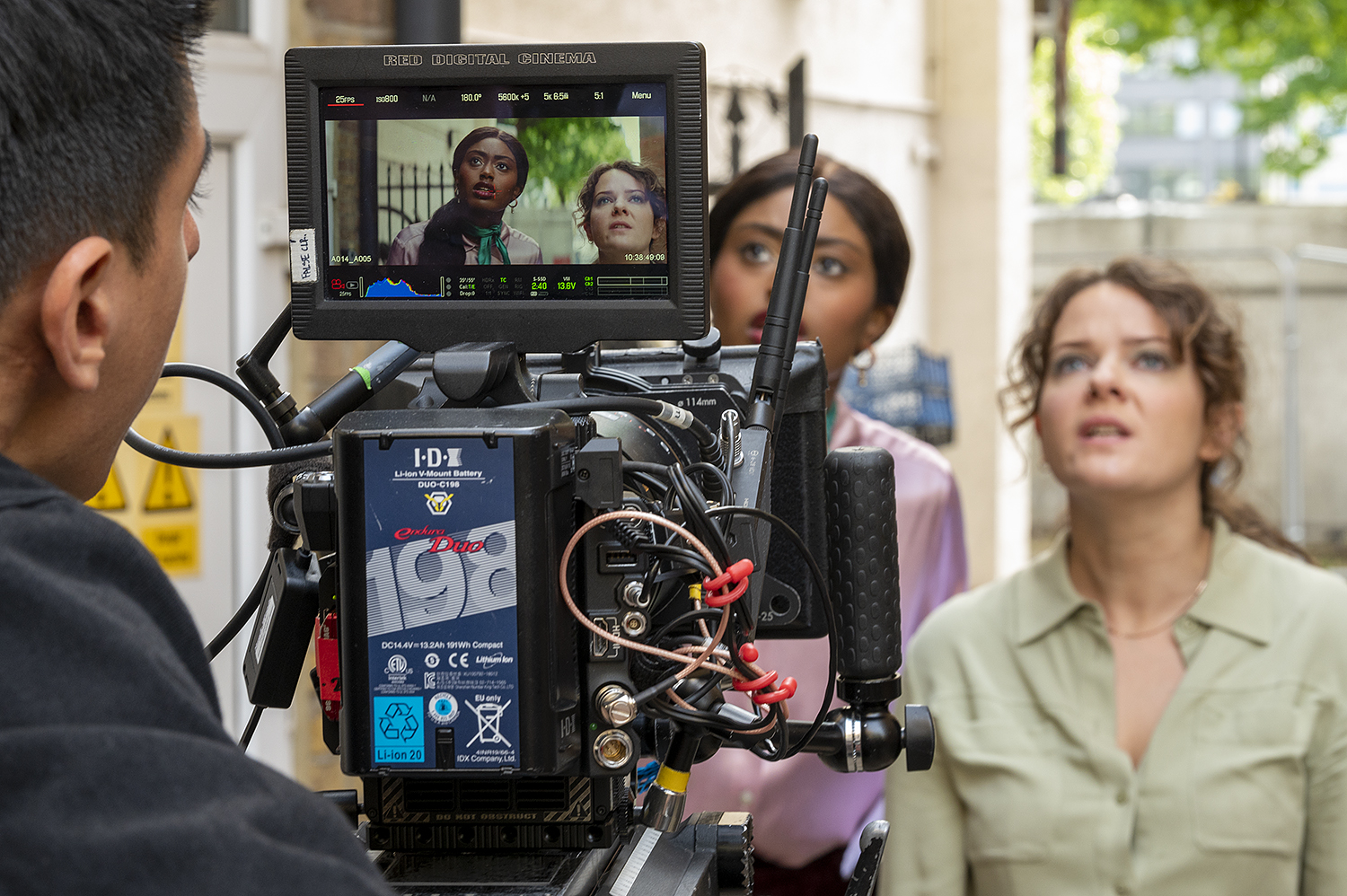- ...
Postgraduate Studentships - Search for funding opportunities.
Postgraduate Studentships - Search for funding opportunities.
Some of the major innovations in performance practices over the past hundred years have been drawn from scenographic developments. The MA/MFA Scenography courses approach scenography from multiple practical and theoretical perspectives to create new opportunities for experimentation and authorship.
Develop authorship through performance design, working with a dynamic interplay of practice and theory, informed by a variety of disciplines including film, sculpture, sound, digital media, puppetry, choreography and architecture
A balance of independent and collaborative work
A professional focus through mentors, tutors and industry partners
Our approach
Through past and present approaches to performance design, the Scenography courses aim to explore dynamic and innovative interplays between the body, space and time, further informed by a variety of disciplines including film, sculpture, sound, digital media, puppetry, choreography and architecture. Your existing skills and practices are challenged, extended and refined as you investigate design processes and tools for creative developments.
With a balanced mix of collaborative and independent work, and a particular attention to the interplay of practice and theory, the courses include:
Our students explore a variety of methods and creative approaches. Students are encouraged to constructively challenge ideas of hierarchy and authority in creative structures. The course values co-authorship and sensitive critical dialogues that acknowledge and allow for difference. We are interested in traditional texts and practices as opportunities to expose, critique, destabilize, subvert and move beyond the problematic values they may carry. We strive to act as a hub for re-imagining and implementing better and more diverse standards in scenography.
You should normally have an undergraduate degree in the broad field of performance, drama studies or a design subject, although applications from students of other disciplines (e.g. visual arts, architecture, sonic arts) will be considered. Applications from those with at least two years’ relevant experience will also be considered. An offer will normally only be made after interview.
An MFA top-up year for those with an existing MA in this subject is also available.
We particularly encourage applications from groups currently under-represented in higher education, such as students with disabilities and members of Black, Asian and Minority Ethnic groups.
English Language Requirements
Applicants for whom English is not their first language are required to prove their English language proficiency by gaining an overall score of 7.0 in an IELTS test. We do accept equivalent English language qualifications. Applicants are advised to gain this certification as early as possible and more information can be found through the English Language Requirements page.
Application Details
If you are selected for an interview for a place on the Scenography, MA or MFA courses, we will require you to bring with you some relevant examples of your practical work.
This portfolio will contribute to further discussion about your qualifications, experience, interest in the subject and your plans for the future. Please be careful to edit and prepare your portfolio so that you can present and discuss the work with ease. This portfolio may be a physical artefact or a digital document, and should include some evidence of your technical experience where appropriate to the nature of your chosen media.
Applicants may be seen individually or as part of a group, undertaking a number of activities as part of the interview process.
During the interview process you will have a chance to learn more about the courses and the School.
International Interviews
Each year Central hosts a number of interviews outside of the UK, with a team of tutors from Central travelling to meet applicants. The international interviews are designed to replicate the London-based interview experience in every aspect (other than a tour of our site).
For fees and funding options, please visit website to find out more
Graduate employment and career pathways include:
Designer
Design Assistant
Artistic Director
Interdisciplinary Artist
In the first year, students of the MA and MFA combine for terms one to three of their course.
The MFA second year extends the final project initiated at the end of the first year, with support from seminars and tutorials with the course team and with the possibility of undertaking one or two workplace/ professional attachments.
An MFA top-up year for those with an existing MA in this subject is also available.
Assessment
Assessment is by practical conceptions and realisations, written assignments and verbal presentations (individual and collaborative). You will collaborate with your class peers, as well as with other courses within Central to create and design new work, including the MA/MFA Advanced Theatre Practice, MA Acting for Screen, MA/MFA Performance Practice as Research and MA/MFA Creative Producing.
Archives of past students’ work on the course can be seen at www.mascenography.com.

The Royal Central School of Speech and Drama is a small specialist institution of the theatrical and performing arts within the University of London....
Sign up to Postgraduate Studentships
Sign up to compare masters
Thanks for making your selection. Click below to view your comparisons.